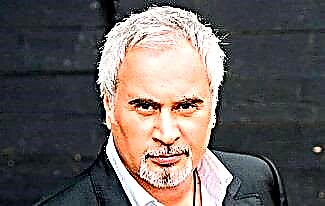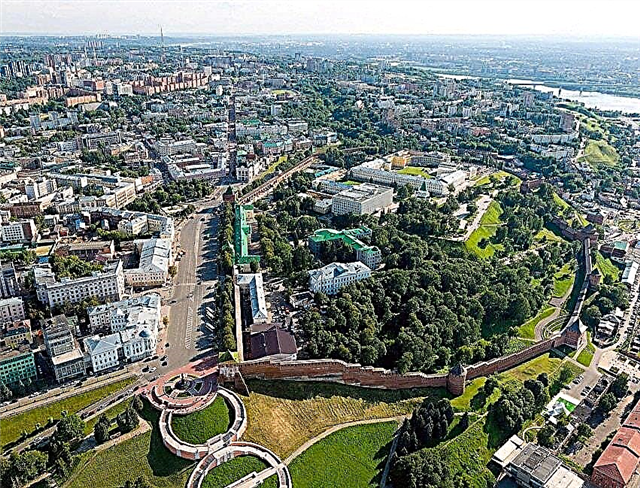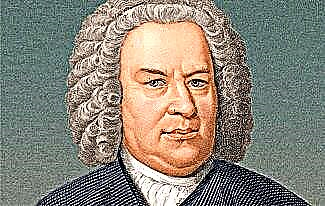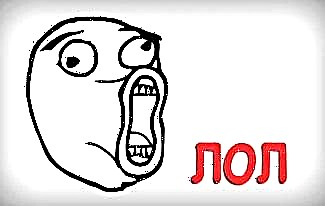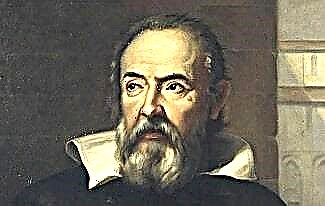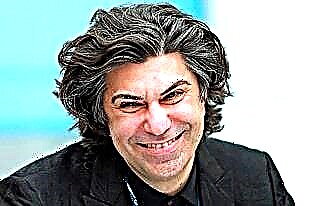Konstantin Georgievich Paustovsky (1892 - 1968) became a classic of Russian literature during his lifetime. His works were included in the school curriculum for literature as examples of landscape prose. Paustovsky's novels, novellas, and short stories enjoyed immense popularity in the Soviet Union and were translated into many foreign languages. More than a dozen of the writer's works were published in France alone. In 1963, according to a poll of one of the newspapers, K. Paustovsky was recognized as the most popular writer of the USSR.

Paustovsky's generation passed the hardest natural selection. In three revolutions and two wars, only the strongest and strongest survived. In his autobiographical Tale of Life, the writer, as it were, casually and even with a kind of melancholy, writes about executions, hunger, and domestic hardships. He devoted only two pages to his attempted execution in Kiev. Already in such conditions, it would seem, there is no time for lyrics and natural beauties.

However, Paustovsky saw and appreciated the beauty of nature from childhood. And having already become acquainted with Central Russia, he became attached to her soul. There are enough landscape masters in the history of Russian literature, but for many of them the landscape is just a means to create the right mood in the reader. Paustovsky's landscapes are independent, in them nature lives its own life.

In the biography of K.G. Paustovsky there is only one, but very great ambiguity - the absence of prizes. The writer was very willingly published, he was awarded the Order of Lenin, but Paustovsky was not awarded either the Lenin, Stalin, or State prizes. It is difficult to explain this by ideological persecution - writers lived nearby, forced to translate in order to earn at least a piece of bread. Paustovsky's talent and popularity was recognized by everyone. Perhaps it is because of the extraordinary decency of the writer. The Writers' Union was still a cesspool. It was necessary to intrigue, to join some groups, to sit on someone, to flatter someone, which was unacceptable for Konstantin Georgievich. However, he never expressed any regrets. In the true vocation of a writer, Paustovsky wrote, “there is neither false pathos, nor pompous awareness of the writer of his exclusive role”.

Marlene Dietrich kissed the hands of her favorite writer
1. K. Paustovsky was born into a family of railway statisticians in Moscow. When the boy was 6 years old, the family moved to Kiev. Then, on his own, Paustovsky traveled almost the entire south of Russia at that time: Odessa, Batumi, Bryansk, Taganrog, Yuzovka, Sukhumi, Tbilisi, Yerevan, Baku and even visited Persia.

Moscow at the end of the 19th century
2. In 1923 Paustovsky finally settled in Moscow - Ruvim Fraerman, whom they met in Batumi, got a job as an editor at ROSTA (Russian Telegraph Agency, predecessor of TASS), and put in a word for his friend. The one-act humorous play "A Day in Growth", written while working as an editor, was most likely Paustovsky's debut in drama.

Reuben Fraerman not only wrote "Wild Dog Dingo", but also brought Paustovsky to Moscow
3. Paustovsky had two brothers, who died on the same day on the fronts of the First World War, and a sister. Paustovsky himself also visited the front - he served as an orderly, but after the death of his brothers he was demobilized.
4. In 1906, the Paustovsky family broke up. My father had a falling out with his superiors, ran into debt and fled. The family lived by selling things, but then this source of income also dried up - the property was described for debts. The father secretly gave his son a letter in which he urged him to be strong and not try to understand what he could not yet understand.
5. The first published work of Paustovsky was a story published in the Kiev magazine "Knight".
6. When Kostya Paustovsky was in the final class of the Kiev gymnasium, she just turned 100 years old. On this occasion, Nicholas II visited the gymnasium. He shook hands with Constantine, who was standing on the left flank of the formation, and asked his name. Paustovsky was also present at the theater that evening, when Stolypin was killed there in front of Nikolai's eyes.

7. Paustovsky's independent earnings began with the lessons he gave as a high school student. He also worked as a conductor and tram driver, shell finder, fisherman's assistant, proofreader, and, of course, a journalist.
8. In October 1917, 25-year-old Paustovsky was in Moscow. During the fighting, he and other residents of his house in the city center sat out in the janitor's room. When Konstantin got to his apartment for breadcrumbs, he was seized by the revolutionary workers. Only their commander, who had seen Paustovsky in the house the day before, saved the young man from being shot.
9. The first literary mentor and advisor to Paustovsky was Isaac Babel. It was from him that Paustovsky learned to mercilessly “squeeze out” unnecessary words from the text. Babel immediately wrote in short, as if with an ax, cut phrases, and then suffered for a long time, removing unnecessary things. Paustovsky, with his poetry, made it easier to shorten the texts.

Isaac Babel was called the stingy knight of literature for his addiction to brevity
10. The first collection of stories by the writer "Oncoming Ships" was published in 1928. The first novel "Shining Clouds" - in 1929. In total, dozens of works were published by K. Paustovsky. The complete works are published in 9 volumes.
11. Paustovsky was a passionate lover of fishing and a great connoisseur of fishing and everything connected with it. He was considered the first fisherman among writers, and fishermen recognized him as the second writer among fishermen after Sergei Aksakov. Once Konstantin Georgievich wandered around Meschera with a fishing rod for a long time - he did not bite anywhere, even where, according to all signs, there was fish. Suddenly, the writer discovered that dozens of fishermen were sitting around one of the small lakes. Paustovsky did not like to interfere in the process, but then he could not resist and said that there could be no fish in this lake. He was laughed at - that there should be fish here, he wrote

Paustovsky himself
12. K. Paustovsky wrote only by hand. Moreover, he did this not out of old habit, but because he considered creativity to be an intimate matter, and the machine for him was like a witness or mediator. Secretaries reprinted the manuscripts. At the same time, Paustovsky wrote very quickly - a solid volume of the story “Colchis” was written in just a month. When asked in the editorial office how long the writer worked on the work, this period seemed to him undignified, and he replied that he worked for five months.
13. At the Literary Institute, immediately after the war, Paustovsky's seminars were held - he recruited a group of yesterday's front-line soldiers or those who had been in the occupation. A whole galaxy of famous writers emerged from this group: Yuri Trifonov, Vladimir Tendryakov, Yuri Bondarev, Grigory Baklanov, etc. etc. According to the recollections of students, Konstantin Georgievich was an ideal moderator. When young people began to violently discuss the works of their comrades, he did not interrupt the discussion, even if the criticism became too sharp. But as soon as the author or his colleagues criticizing him became personal, the discussion was mercilessly interrupted, and the offender could easily leave the audience.
14. The writer was extremely fond of order in all its manifestations. He always dressed neatly, sometimes with a certain chic. Perfect order always reigned in his workplace and in his home. One of Paustovsky's acquaintances ended up in his new apartment in a house on Kotelnicheskaya embankment on the day of the move. The furniture was already arranged, but a huge pile of papers lay in the middle of one of the rooms. The very next day, there were special cabinets in the room, and all the papers were taken apart and sorted. Even in the last years of his life, when Konstantin Georgievich was seriously ill, he always went out to people clean-shaven.
15. K. Paustovsky read all his works aloud, mainly to himself or family members. Moreover, he read almost absolutely without any expression, rather unhurriedly and monotonously, even slowing down in key places. Accordingly, he never liked the reading of his works by actors on the radio. And the writer could not stand the voice exaltation of the actresses at all.
16. Paustovsky was an excellent storyteller. Many of the acquaintances who listened to his stories later regretted not writing them down. They expected that Konstantin Georgievich would soon publish them in print. Some of these stories-tales (Paustovsky never emphasized their truthfulness) really appeared in the writer's works. However, most of Konstantin Georgievich's oral work has been irretrievably lost.
17. The writer did not keep his manuscripts, especially the early ones. When one of the fans in connection with the planned publication of the next collection got hold of a manuscript of one of the gymnasium stories, Paustovsky carefully re-read his work and refused to include it in the collection. The story seemed too weak to him.
18. After one incident at the dawn of his career, Paustovsky never collaborated with filmmakers. When it was decided to film "Kara-Bugaz", the filmmakers distorted the meaning of the story so much with their inserts that the author was horrified. Fortunately, due to some troubles, the film never made it to the screens. Since then, Paustovsky has categorically refused to film adaptations of his works.
19. The filmmakers, however, did not take offense at Paustovsky, and among them he was highly respected. When in the late 1930s Paustovsky and Lev Kassil learned about the plight of Arkady Gaidar, they decided to help him. By that time Gaidar had not received royalties for his books. The only way to quickly and seriously improve the writer's financial situation was to film his work. Director Alexander Razumny responded to the call of Paustovsky and Kassil. He commissioned Gaidar for a script and directed the film "Timur and His Team". Gaidar received money as a screenwriter, and then also wrote a novel of the same name, which finally solved his material problems.

Fishing with A. Gaidar
20. Paustovsky's relationship with the theater was not as acute as with cinema, but it is also difficult to call them ideal. Konstantin Georgievich wrote a play about Pushkin (Our Contemporary) ordered by the Maly Theater in 1948 rather quickly. In the theater, it was a success, but Paustovsky was unhappy with the fact that the director tried to make the production more dynamic at the expense of the deep portrayal of the characters.
21. The writer had three wives. With the first, Catherine, he met in an ambulance train. They got married in 1916, broke up in 1936, when Paustovsky met Valeria, who became his second wife. Paustovsky's son from his first marriage, Vadim, devoted his whole life to collecting and storing materials about his father, which he subsequently transferred to the K. Paustovsky Museum Center. The marriage with Valeria, which lasted 14 years, was childless. The third wife of Konstantin Georgievich was the famous actress Tatyana Arbuzova, who looked after the writer until his death. The son from this marriage, Alexei, lived only 26 years, and the daughter of Arbuzova Galina works as a keeper of the Writer's House-Museum in Tarusa.

With Catherine

With Tatiana Arbuzova
22. Konstantin Paustovsky died in Moscow on July 14, 1968 in Moscow. The last years of his life were very difficult. He had long suffered from asthma, which he was used to fighting with the help of homemade semi-handicraft inhalers. Moreover, my heart began to be naughty - three heart attacks and a bunch of less serious attacks. Nevertheless, until the end of his life, the writer remained in the ranks, continuing his professional activity as much as possible.
23. The nationwide love for Paustovsky was not demonstrated by the millions of copies of his books, not the subscription lines in which people stood at night (yes, such lines did not appear with iPhones), and not state awards (two Orders of the Red Banner of Labor and the Order of Lenin). In the small town of Tarusa, in which Paustovsky lived for many years, tens, if not hundreds of thousands of people came together to see the great writer on his last journey.
24. The so-called "democratic intelligentsia" after the death of K. Paustovsky rose to make him an icon of the thaw. According to the catechism of the “thaw” adherents, from February 14, 1966 to June 21, 1968, the writer was engaged only in signing various kinds of petitions, appeals, testimonies and writing petitions. Paustovsky, who suffered three heart attacks, suffering from a severe form of asthma in the last two years of his life, turned out to be concerned about A. Solzhenitsyn's Moscow apartment - - Paustovsky signed an application for such an apartment. In addition, the great singer of Russian nature gave a positive description of the work of A. Sinyavsky and Y. Daniel. Konstantin Georgievich was also very worried about the possible rehabilitation of Stalin (he signed “Letter 25”). He was also worried about preserving a place for the chief director of the Taganka Theater, Y. Lyubimov. For all this, the Soviet government did not give him their prizes and blocked the award of the Nobel Prize. It all looks very logical, but there is a typical distortion of facts: Polish writers nominated Paustovsky for the Nobel Prize back in 1964, and Soviet prizes could have been awarded earlier. But for them, apparently, more cunning colleagues were found. Most of all, this "signing" looks like using the authority of a terminally ill person - they will not do anything to him anyway, and in the West the writer's signature had weight.
25. The nomadic life of K. Paustovsky left an imprint on the perpetuation of his memory. The writer's houses-museums operate in Moscow, Kiev, Crimea, Tarusa, Odessa and the village of Solotcha in the Ryazan region, where Paustovsky also lived. Monuments to the writer have been erected in Odessa and Tarusa. In 2017, the 125th anniversary of the birth of K. Paustovsky was widely celebrated, more than 100 events were held throughout Russia.

House-Museum of K. Paustovsky in Tarusa

Monument in Odessa. The flight paths of creative thought are truly inscrutable

